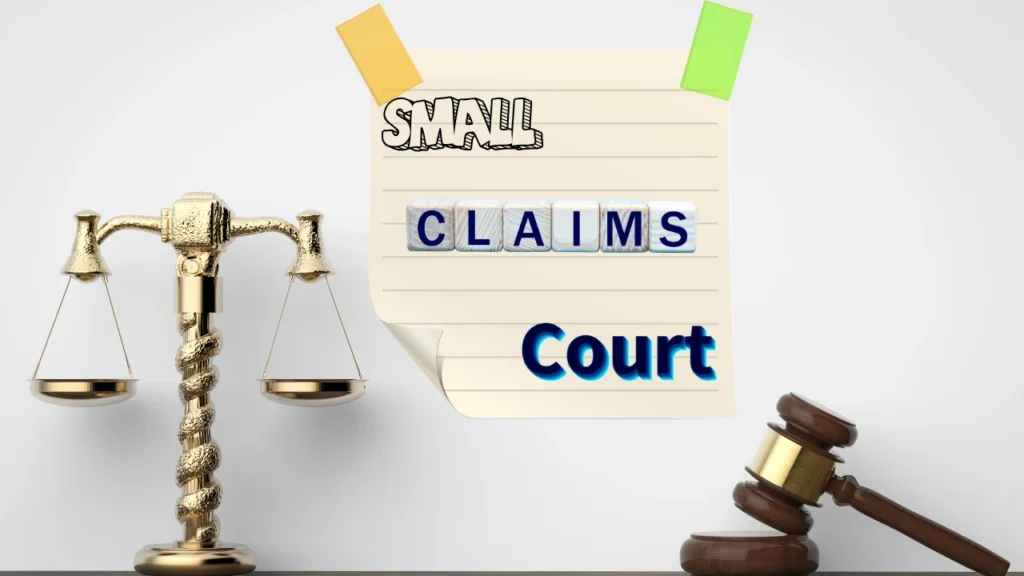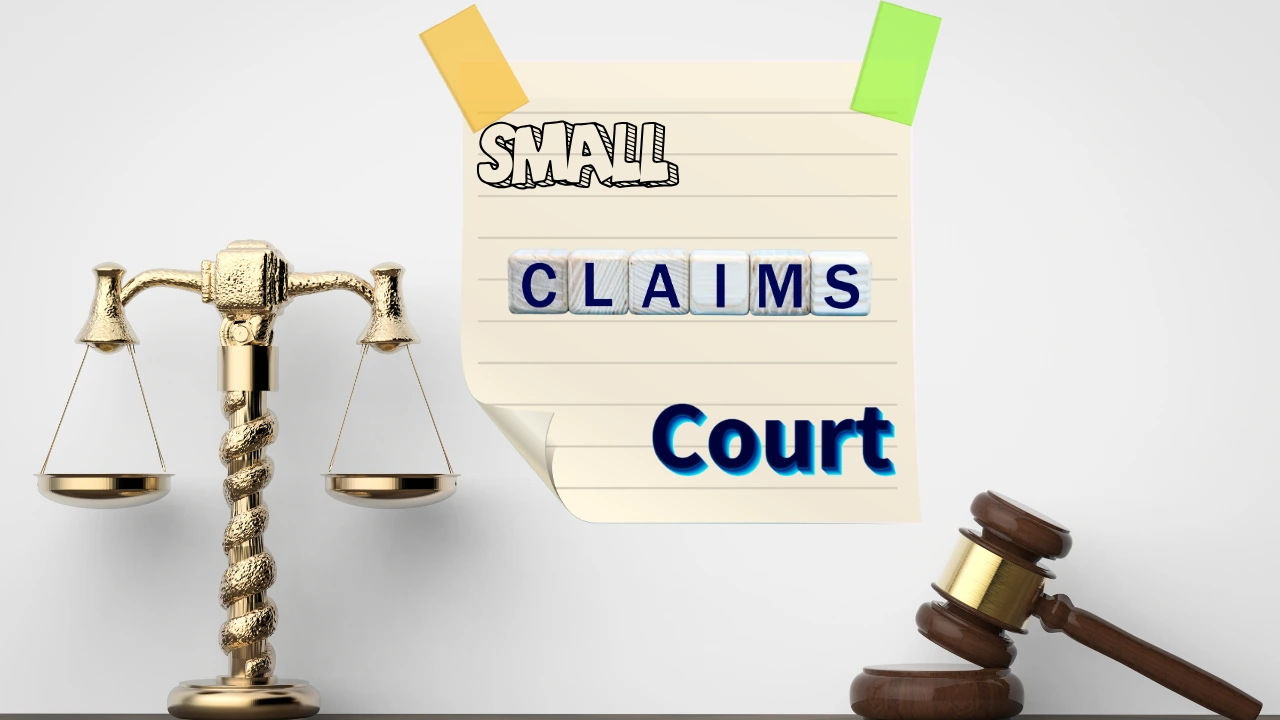Understanding Small Claims Court.Disagreements about the money can be stressful, whether it is a landlord refusing to return your security deposit, a friend who won’t pay back a loan, or a business that sold you a product that does not work.
Hiring a lawyer which often costs more than the money at stake, leaving people feeling powerless. That is where a small claims court comes in. It is designed to be a faster, cheaper, and more straightforward way for everyday people to resolve their disputes without needing an attorney.
Understanding Small Claims Court: When and How to File-Overview
| Article on | Understanding Small Claims Court: When and How to File |
| What is it? | A simple court for resolving money disputes (usually under $12,500) without lawyers. |
| When to file | For unpaid loans, deposits, damages, or faulty goods/services within legal time limits. |
| Costs | Filing fees range from $30–$75 (fee waivers available); added costs for multiple cases. |
| Process | File forms → Serve defendant → Prepare evidence → Attend short hearing → Get decision. |
| After judgment | Winning doesn’t guarantee payment as you may need to collect through court methods. |
What is a Small Claims Court?
Small claims court is a special division of civil court that handles the cases involving relatively small amounts of money. The idea is to give people a simple and affordable way to settle their disputes without the need for lawyers or complicated procedures. In California, for example, you can generally sue for around $12,500 if you are an individual. Businesses, depending on their type, usually have lower limits, often capped at $6,250. Different from the higher courts, small claims cases are informal.
There is no jury, and both sides usually represent themselves. The judge listens to each party, reviews any evidence, and makes a decision. Because the process is streamlined, cases move more quickly often with hearings scheduled within a couple of months.

When to Consider Filing a Case
Small claims courts are available for straightforward disputes where money is owed. Some common examples include a landlord who refuses to return a deposit, a car repair shop charging for work that was not done, a neighbor who is damaging property, or someone failing to repay a loan.
That said, not every disagreement belongs in small claims court. If your case involves more money than the court allows, or if it’s very complex with lots of legal issues, you may need to file in a higher court. You can choose to lower the amount of your claim to fit within the limit, but you can’t split one large claim into multiple small claims cases.
Costs and Filing Fees
Filing in small claims court is not free, but the fees are much lower than those in other courts. In California, it costs about $30 to file if you are suing for up to $1,500. If your claim is higher, the fee increases, topping out at $75 for claims over $5,000. If you file more than 12 claims in a single year, the fee for each additional case jumps to $100.
Where and How to File
When filing your case, you are required to choose the right courthouse. Typically, you file in the county where the defendant lives or where the issue took place for example, where a contract was signed or where property damage occurred. Filing in the wrong court can delay or even make the wrong decision on your case, so it is worth double-checking before you submit your paperwork.
Serving the Defendant
Once your paperwork is filed, you are not done. The law requires that the other party be formally notified about the lawsuit. This is called “service of process.” You can’t serve the papers yourself; instead, someone over 18 who is not part of the case must do it, or you can pay the sheriff’s office or a professional process server. Afterward, proof of service must be filed with the court to show that the defendant was properly notified.
Preparing for Court
A big part of success in small claims court is preparation. Since you will be representing yourself, you will need to bring evidence that clearly shows why the defendant owes you money. Evidence might include the receipts, invoices, repair estimates, photos, contracts, or even text messages and emails. If there are witnesses who can support your version of events, they can testify as well.
In most of the courts, including Los Angeles County, evidence must be shared with the other side and submitted to the court ahead of time, often at least 10 days before the hearing. Some courts even allow you to upload evidence online, making the process easier.
It is also wise to organize your thoughts before the hearing. Be ready to explain what happened, why the other party owes you money, and how you calculated the amount you are requesting. Keep your explanation short and focused. The Judges hear many cases each day, so being clear and concise works in your favor.
Language and Accessibility
You are not required to be a U.S. citizen to use small claims court, and if you don’t speak English, you can ask for an interpreter. Many courts provide interpreters for free in a variety of languages, though availability may vary. If the court cannot provide one in your language, you can bring someone who is fluent in both English and your language.
After the Judgment
Winning in court is only part of the process. If the judge rules in your favor, the defendant may pay voluntarily, but sometimes collection is more complicated. You may need to take additional steps, such as garnishing wages or placing a lien on property, to get the money you are owed. Courts often provide resources to help with collection, but be prepared that it may take time.
Final Thoughts
Small claims court can be an empowering tool for people who need to resolve money disputes without spending thousands on legal fees. It is designed to be accessible, affordable, and efficient, giving individuals and small businesses a way to hold others accountable.
| Home Page | https://sbbarristers.com/ |
FAQs for Understanding Small Claims Court
Ques.1. Is there any requirement of a lawyer for a small claims court to represent?
No, most of the cases are represented by yourself and you aren’t required to have a lawyer for it.
Ques.2. What is the maximum I can sue for?
It depends on where you live because in California, the individuals can usually sue for up to $12,500.
Ques.3. How much does it cost to file a case?
Filing fees are generally between $30 and $75, as this is totally depending on the amount you’re claiming.
